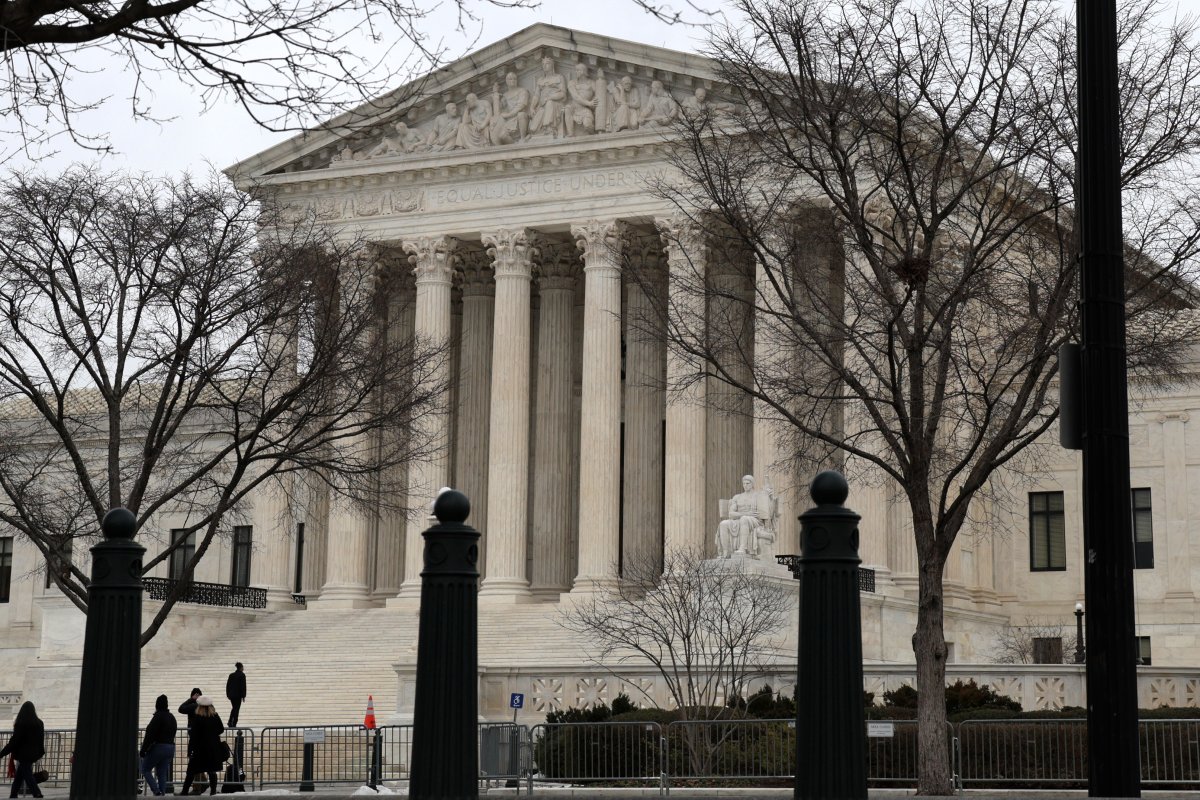The Supreme Court ruled on Thursday that the president did not have authority under the Occupational Health and Safety Act (OSHA) to mandate vaccines for the roughly 100 million people who work for large private companies. That decision was 6-3, with Chief Justice John Roberts and Justice Brett Kavanaugh voting with the majority and against the three "liberal" justices. These two justices then joined the three liberals in upholding the mandate for health workers. These were not final decisions—the issues involved stays of lower court judgements. But as a matter of constitutional law and statutory interpretation, the Supreme Court's two decisions are probably correct.
Although these decisions may appear inconsistent on a superficial level, they make sense when looked at from a purely legal perspective. In my recent book, The Case for Vaccine Mandates, I predicted this outcome. One section of my book is entitled "In a democracy who decides?" That was precisely the question posed by Justice Neil Gorsuch in his concurring opinion for the OSHA case.
Under our federal system of separation of powers, Congress gets to make laws that are within the authority of the federal government. The executive enforces these laws, and the judiciary decides whether they are constitutional.
The judiciary also decides whether Congress authorized the executive branch to make certain decisions. In this case, a majority decided that the OSHA law enacted by Congress did not grant authority to the executive branch for so broad a mandate. But a 5-4 majority then decided that Congress did authorize administrative agencies to condition receipt of federal health benefits on vaccine mandates.
As I wrote in my book, it is far better for Congress, rather than the executive, to make broad-based, controversial decisions that affect so many millions of Americans. Administrative agencies are far less representative of the will of the people than is the elected Congress.

So, the split decision was probably correct as a matter of law, though confusing to many as a matter of policy. Few Americans will be satisfied with it. Those who favor mandates will be frustrated by the Supreme Court's OSHA decision, while those who oppose mandates will disagree with the decision regarding health care workers. It is not the job of the Supreme Court to satisfy Americans. Its job is to be faithful to the objective rule of law. There are good arguments on all sides of these issues and a divided decision by a divided Court should surprise no one.
Many issues still remain open as a result of these two decisions. One involves the power of states to enact laws mandating vaccination, or to enact laws prohibiting vaccine mandates. It is possible to imagine directly conflicting outcomes: New York and California might enact legislation requiring vaccine mandates for large private employers, while Texas and Georgia might pass laws prohibiting employers from requiring vaccination. Although COVID does not respect state boundaries, the Constitution may well permit different rules for different states, especially if Congress does not act to federalize the issue of vaccine mandates.
So stay tuned. This is not the last you will hear from the Supreme Court regarding vaccine mandates. The most fundamental issue is whether a properly enacted federal law mandating vaccinations, with appropriate exceptions and based on current science, would be upheld by the current Supreme Court. This may never come to pass, because it is unlikely that Congress would enact so broad a mandate. But if it did, the five justices who upheld the health provider mandate might well uphold a more general mandate. But that is far from certain in light of the careful language the justices used in this case.
Americans are deeply divided, not so much about the benefits of vaccination as about the legitimacy of government vaccination mandates. That is why it is far better, as a matter of policy, for Congress to hold hearings, with the best scientists in the world, to decide whether vaccine mandates should be permitted, under what circumstances and with what exceptions. With today's highly partisan Congress, it seems unlikely that the two sides could agree on anything as controversial as vaccine mandates, or even on which experts to call to discuss the issues. But someone must decide, and the Supreme Court made clear in its two decisions that Congress, for better or worse, is the appropriate institution for making decisions regarding vaccine mandates.
Follow Alan Dershowitz on Twitter @AlanDersh and on Facebook @AlanMDershowitz. His new podcast, The Dershow, can be found on Spotify, YouTube and iTunes.
The views expressed in this article are the writer's own.
Uncommon Knowledge
Newsweek is committed to challenging conventional wisdom and finding connections in the search for common ground.
Newsweek is committed to challenging conventional wisdom and finding connections in the search for common ground.
About the writer
To read how Newsweek uses AI as a newsroom tool, Click here.








